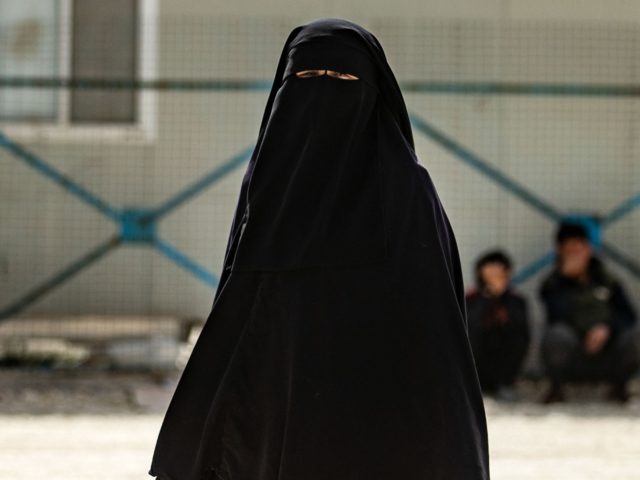Germany and Denmark have brought back 11 Islamic State women and 37 children from prison camps in Syria, with Denmark arresting three of the women immediately upon their return.
A chartered aeroplane, with U.S. backing, landed shortly before midnight on Wednesday at Frankfurt airport returning eight Islamic State women and their 23 children. The flight continued on to land at Denmark’s Karup Air Base, returning three women and 14 children early Thursday morning.
According to a report from the Danish broadcaster TV2, Central and West Jutland Police immediately took the three women into custody and charged them with promoting terrorist activity.
“The arrests have proceeded as intended and without drama. Police will now conduct investigations into the cases of the three women,” Tenna Wilbert, chief inspector of police from the National Emergency Department, said.
In Germany, meanwhile, a large number of the women, aged 30 to 38, were also taken into custody, according to a report from the newspaper Tagesspiegel.
Foreign Minister Heiko Maas commented on the return of the Islamic extremist women and their children, saying: “The mothers will have to answer to the criminal justice system for their actions.”
At least six of the women were issued with arrest warrants, three of which are believed to come from the German Federal Prosecutor General.
Mr Maas noted the children would be placed in a safe environment.
The return of the Islamic State women comes just weeks after Sweden also flew out three women and their children from Syrian prison camps. While two of them women were initially arrested, they were all released from custody a short time later.
“Suspicions remain, but prosecutors have made an assessment that there are no grounds for continued detention,” the Public Prosecutor’s Office said.
Earlier this week, documents from the Swedish state department revealed that Kurdish authorities had attempted to bring charges against the women, but could not due to lack of evidence.
The documents, which included communications between Swedish and Kurdish authorities, stated that the Kurds believed the women were too dangerous to keep in Syria and subsequently banned them from ever returning to the region for life.
Sweden has had major problems prosecuting returned Islamic State members and as of March, had seen no charges and zero convictions under its year-old anti-terror law.

COMMENTS
Please let us know if you're having issues with commenting.